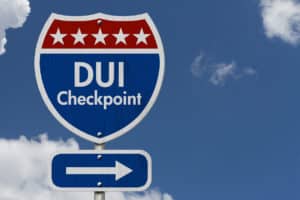
Were you recently arrested for driving under the influence of alcohol or drugs in West Chester, PA? Contact Mike DiCindio, an experienced West Chester DUI lawyer at DiCindio Law, LLC to help you fight, call us at (610) 991-7860.
The consequences for a DUI case in Pennsylvania could include steep financial penalties, loss of driving privilege, and even jail time. While serious – you have defense options available.
Mike DiCindio has over a decade of experience handling DUI/DWI cases–and has helped countless clients reduce or beat their charges over the years.
Table of Contents
How DiCindio Law, LLC Can Help Me if I Was Arrested for a DUI in Chester County, PA?

Drunk driving is extremely dangerous. It’s no surprise that law enforcement officials in Pennsylvania are strict when it comes to DUI enforcement and charging. However, that doesn’t mean that you’re automatically guilty.
Sometimes police officers are overzealous in DUI enforcement. Other times, they might charge you with a more serious DUI offense than is justified under the circumstances. An experienced West Chester criminal defense lawyer can stand up and fight to protect your legal rights.
Attorney Mike DiCindio at DiCindio Law, LLC is a former Chester County Prosecutor. He understands how the prosecution of driving under the influence matters proceeds and the types of defense strategies that will prove effective in defending against these charges.
When you hire DiCindio Law, Attorney DiCindio will:
-
- Gather all relevant evidence in your case
-
- Examine the facts and context to build the strongest defense possible
-
- Negotiate with prosecutors to get your charges reduced or dropped
-
- Help you understand all of your legal options
Over time, Mike DiCindio has been recognized by Super Lawyers and earned a perfect 10-AVVO rating. He prides himself on giving his clients the time and attention they deserve.
Do you have questions about your legal alternatives? Call DiCindio Law, LLC to schedule a case review with an attorney today, at no cost.
Overview of the DUI Laws in Pennsylvania

It’s illegal to operate a vehicle while intoxicated under Pennsylvania law. A driver’s level of impairment can be measured with a breathalyzer test or blood test–or by the officer’s observations at the scene. Urine can also be used to determine whether or not a driver is under the influence of controlled substances.
Under Pennsylvania DUI legislation, DUI charges are classified as either:
-
- General impairment DUI
-
- High BAC DUI (BAC of more than 0.10% and less than 0.16% within two hours of driving)
-
- Highest BAC DUI (BAC of more 0.16% or higher within two hours of driving)
Police Officers can charge you with a general impairment DUI under 75 Pa. C.S. 3802 if you were in control of a vehicle and one of the following is true:
-
- Your blood alcohol content (BAC) was at least 0.08%
-
- You have consumed a sufficient amount of alcohol to be impaired
In other words, it’s possible that you could be arrested and convicted of a DUI without submitting to chemical testing. It’s also possible that you could be charged with a general impairment DUI if your BAC reading was less than 0.08%.
On the other hand, the law enforcement officers don’t actually have to prove that you were impaired to charge you with a DUI. If your BAC reading was at least 0.08%, they can charge you regardless of whether you were capable of controlling the vehicle safely. Overall, it is in your best interest to speak to an attorney as soon as possible.
What are the Penalties for DUI Cases in Chester County, PA?
Three tiers of penalties exist for DUI charges in West Chester and across Chester County. The exact penalties for any DUI case depend on two primary factors:
-
- Your blood alcohol content
-
- Whether you’re a first-time offender or a repeat offender
To base a DUI on your BAC, your blood alcohol content must be measured within two hours after the moment you operated the vehicle.
General Impairment DUI Penalties
First-time offenders are usually subject to lighter penalties than repeat DUI offenders. For first offenders with a general impairment DUI, those might encompass:
-
- A minimum of six months of probation
-
- $300 in fines
-
- Attendance at an approved alcohol highway safety school
-
- Possible court-mandated alcohol or drug treatment
The penalties increase for subsequent offenses. For your second general impairment DUI, the penalties include:
-
- A minimum of five days in prison (with a potential maximum of six months)
-
- Between $300 and $2,500 in penalty fees
-
- Attendance at an approved alcohol highway safety school
-
- Alcohol or drug treatment when ordered
-
- Installation of an ignition interlock device for one year
-
- Driver’s license suspension
A third DUI offense is a second-degree misdemeanor. Conviction carries:
-
- A minimum of ten days in jail (with a potential sentence of two years in jail)
-
- Between $500 and $5,000 in fines
-
- Court-ordered alcohol or drug treatment
-
- Installation of an ignition interlock device for one year
-
- A 12-month driver’s license suspension
A fourth general impairment DUI charge is a third-degree felony. Further, consequences for even first offenders are increased if it was related to a car accident that caused property damage, bodily injury, or death.
High BAC DUI Penalties
High BAC DUI penalties typically apply if your BAC was between 0.10% and 0.159%. However, these also apply to:
-
- Underage drunk drivers
-
- Commercial drivers
-
- School bus operators
Depending upon whether you’re a repeat offender, a high BAC DUI conviction can result in:
-
- License suspension for between 30 days and 18 months
-
- At least 48 hours in prison
-
- Between $500 and $10,000 in fines
-
- Court-ordered alcohol or drug treatment
-
- Installation of an ignition interlock device for one year
-
- Alcohol highway safety school (for first and second-time offenses)
Drivers who would otherwise be charged with general impairment DUI can be charged with high BAC DUI penalties even if their BAC was less than 0.10% if they’re involved in an accident that injures someone or causes property damage.
Highest BAC DUI Penalties
“Highest BAC” penalties apply if your BAC was at least 0.16% or if you have any amount of illegal drugs in your system. First offenders face ungraded misdemeanor charges.
Depending on whether or not you’re eligible for Accelerated Rehabilitative Disposition (ARD), those penalties can encompass:
-
- Up to 6 months in jail
-
- Driver’s license suspension for one year
-
- $1,000 to $5,000 in fines
-
- Alcohol highway safety school
-
- Court-ordered treatment
-
- Ignition interlock installation
If you have one prior PA DUI conviction, you’ll usually be facing a first-degree misdemeanor charge, which can carry:
-
- An 18-month driver’s license suspension
-
- Up to five years in prison
-
- Up to $10,000 in penalty fees
-
- Alcohol highway safety school
-
- Court-ordered alcohol or drug treatment
-
- Installation of an ignition interlock device
If you refuse to submit to a breathalyzer or chemical testing, you will also be subject to the highest BAC penalties. That’s because drivers in Pennsylvania are subject to “implied consent” laws–so that you’re deemed to consent to testing simply by getting behind the wheel.
For a third DUI conviction at the highest rate, penalties include:
-
- Up to 7 years in prison (one minimum)
- Fines up to $15,000
-
- License suspension for 18 months
-
- Installation of an ignition interlock device
Keep in mind that Pennsylvania uses a 10 year look-back period to determine if you have any prior DUIs for sentencing purposes.
What Defenses Can Be Raised if I’m Arrested on DUI Charges?

At DiCindio Law, LLC, Attorney Mike DiCindio will do everything in his power to build the strongest defense strategy possible. The specifics will depend on the facts and circumstances of your individual case. Potentially effective defense strategies often include:
-
- The police lacked probable cause for your traffic stop
-
- Lack of probable cause for chemical testing or field sobriety testing
-
- Errors in the field sobriety testing process
-
- Police bias
-
- Failure to properly maintain or calibrate the breathalyzer machine
-
- Officers failing to administer the chemical test in the required time frame
-
- Chain of custody problems with your chemical testing sample
-
- The police coerced you into making statements
-
- Violation of your constitutional rights
-
- Lack of evidence to support the charges
Law enforcement officers and prosecutors have to follow Constitutional requirements and criminal rules of procedure when investigating and prosecuting criminal DUI offenses. When those rules are not followed it presents legal defenses that can be raised on your behalf.
The penalties for driving under the influence of drugs or alcohol in Pennsylvania are harsh. However, not every DUI arrest results in a conviction. Even when convicted, judges have discretion when it comes to your punishment. With an aggressive DUI lawyer by your side, you greatly increase your chances of minimizing these consequences.
Mike DiCindio has handled countless DUI cases. He knows how law enforcement officers operate while investigating these matters and the rules they must follow. He will fight to have your DUI charges reduced or your case dismissed if possible.
If you were arrested for driving while intoxicated or DUI offense in West Chester, Chester County or the surrounding area, don’t wait to take legal action. Contact DiCindio Law, LLC at no-cost to schedule an evaluation and discuss your defense options today.
Schedule a Free Case Review With a DUI Lawyer in Chester County, PA

Police in the Commonwealth of Pennsylvania take drunk driving seriously. If you or a loved one are facing DUI charges in Delaware County, Chester County, or Montgomery County, contact DiCindio Law, LLC for an initial case review today. An experienced DUI defense lawyer can help you avoid harsh penalties under Pennsylvania DUI legislation.
DUI Attorney Review

https://goo.gl/maps/NiXPAmWZwgeHRfTY7
Read more of our client reviews here.
